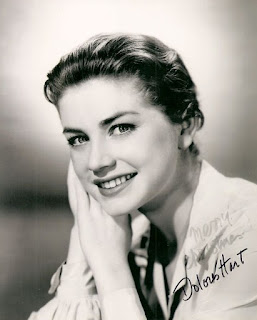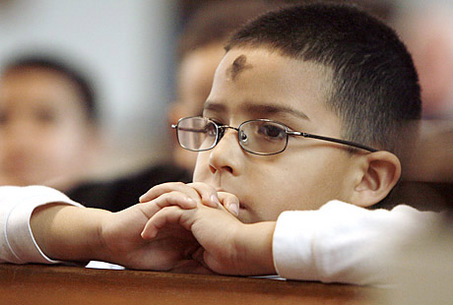So @passionflwr86 tagged me for the Seven Things thing but I was in Wyoming at the time visiting family! So while I am way behind and everyone I’d have likely tagged has already been tagged by others, I’ll fire off seven random things you may not know about me anyways. It may not be as popular as the last time I did this, but here goes!
And yes, in due time I will continue posting portions of The Debtor King; we are closing on the end!
1. I only watch TV four times a week.




If Fox had never cancelled Firefly, I’d watch TV five times a week.
2. From birth until kindergarten, I had severe epilepsy.
According to my mother, it is by the grace of God and the miraculous apparatus known as the defibrillator that I am here typing this now! I spent a great deal of time in hospitals as a wee child, though I have only two memories.
One memory is watching the fireworks of Independence Day; I must have been three of four years old. I remember standing at the big window of my hospital room and then I turned around to ask my mom, “Mommy, why is the sky crying?”
My other memory is lying on my hospital bed with an IV in both of my skinny little arms, Garfield bandages and cotton balls all over the place, watching some National Geographic special on gorillas with my mom.
Not long before I started kindergarten I remember going to an appointment to see if I still had epilepsy; I apparently hadn’t had a seizure in a good long while (not that anyone was disappointed). I was going to have an EEG so they glued all these electrode things to my head (the glue smelled like nail polish) and then they said they wanted to give me something so I’d go to sleep. I said, “No, I can go to sleep by myself,” so I lay down, closed my eyes, and went to sleep to the amazement of all. They didn’t see anything out of the ordinary, and though no one was able to explain it, my epilepsy–as severe a case as it was–was totally gone and never, ever came back.
3. In second grade I had a post-graduate reading level.
I devoured books as a youngster, and in my elementary years I was already tackling adult-level (not adult-rated, mind you!) books like Jurassic Park and such. I didn’t think much of it at the time, but looking back I can see how my parents and teachers must have thought that was pretty neat. I’m glad, though, that it didn’t go to my head; it probably would not have been prudent to brag to the senior kids on my bus that I could read at a more advanced level than they could!
4. I was in eighth grade when a movie first made me cry.

I had already seen “The Last of the Mohicans” many, many times; it was my favorite movie and is still definitely in my Top Ten. But for some reason one day in eighth grade I was watching it after school, by myself, and the part shortly after Magua slays Uncas came up, there was a shift in my soul. I watched Alice Munro step toward the edge, I finally noticed the music, the soft rain that began to fall, the even softer thunder in the distance and the look on her face and then she leaps to her death to escape what was sure to be a far worse fate. I bawled like a baby! I didn’t understand it at all, but I bawled and I have no shame admitting it; that scene is so utterly tragic and beautiful at the same time.
5. Top Five Influential Movies Ever.
Let’s see if I can even do this! They follow in no particular order; I couldn’t even begin to order them according to preference. I know most people go for a Top Five Favorites or so, but I figured I’d give y’all something different.

1. Braveheart: this movie had such an impact on me when I watched it. I saw a hero, finally, and though I understood that the movie romanticized the actual William Wallace almost to the point of being about a completely different person altogether, nevertheless I was deeply struck with the character and the whole movie. I loved the music, the scenery, but I think what stirred me most was that all his passion, his drive for everything he did, came from the love he not only had for his wife but continued to have for her, even after her death. At a time when I was feeling so alone, totally unworthy of love at all and overlooked by every woman I encountered, I still found myself inspired to hope that maybe, someday, I’d find my own Murron and perhaps even something worth fighting and dying for. Who knew that my Murron would be the Bride of Christ–the Church–and the Faith my cause? I certainly didn’t!
This movie was so influential that in my senior year of high school, when my mother said that she would take me anywhere in the whole world for two weeks since I did so well in all twelve years of school, I choose to make a William Wallace pilgrimage. We flew to London two weeks after 9-11 (a very interesting time to fly but a blessed time to be an American abroad; I’ve never been treated so kindly by anyone simply for being from the USA) and then went to York (sacked by Wallace in the movie though I don’t know if it ever happened for real!) which was absolutely beautiful. The cathedral there is absolutely breath-taking! Then up to Edinburgh, Stirling (where the amazing Wallace Monument and Stirling Castle are both located!) and finally Loch Ness and Loch Lomond because–hello–we were in SCOTLAND!
And since we were in Scotland, I got my kilt, which I still have.

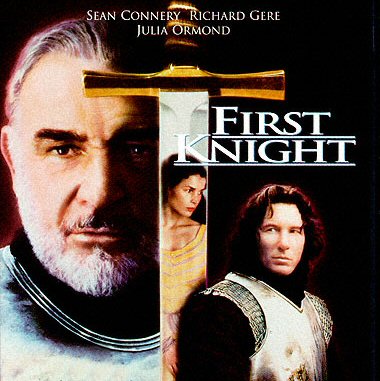
2. First Knight: At the time I was a hopeless romantic and loved anything related to King Arthur. What this movie did for me was to help me grow in something I needed desperately, though I didn’t know it: courage. I was in seventh grade, socially-awkward, shy and very rarely spoke up in class (at least I seem to remember being this way). If ever I had to speak in front of the class I was terrified. I saw myself as a total loser, had only a few friends who for the most part were social outcasts like me. Then I saw Lancelot, and though I was mad at him for screwing things up between Arthur and Guinevere, he taught me an important lesson, or so I thought.
There is a scene shortly after Lancelot runs The Gauntlet successfully and Arthur asks him where he gets such courage. Lancelot says that he has nothing to lose–no land, money, home, family, etc.–and thus he has no fear. What I did catch was that Arthur said that a man with nothing to lose has nothing to live for, or something along those lines, but I was fixed on what Lancelot said because that is how I felt: I had nothing to lose, so what was I always so afraid of? Looking back I saw that I had so much: home, family, things and people I loved, few but true friends, talents, and so on. But what this did was embolden me to not be so afraid any more, and so my fear of speaking in front of the class, being a little more outgoing socially, not caring what others thought about how geeky I was and all else came about and by the time I graduated high school I was a completely different person. While my understanding of where my courage comes from has changed drastically, it all started with Lancelot’s somewhat sad explanation of the origin of his. But God can make marvelous things out of clay, don’t you think?
3. The Original Star Wars Trilogy: I think I covered that well enough the first time I did this Seven Things thing!
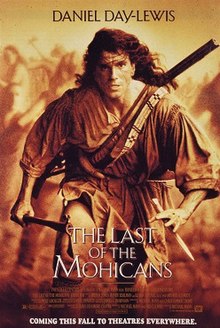
4. The Last of the Mohicans: I totally fell in love with this movie. I was never really a lover of listening to music until in the sixth grade when I “discovered” Beethoven and Aaron Copland’s “Appalachian Springs” in music class. In my search for beautiful music I stumbled on the cassette recording of this film’s soundtrack and so began a life-long love of film scores. Before I entered the Society of Jesus I had well over 300 CDs, over 250 of which were film scores. I gave about half of them away to various friends and the rest remain at my mom’s house.
This film also awakened in me a love of nature and a desire to be adventurous. That movie still stirs my heart, and I can’t help but feel the urge to sling a rifle over my shoulders and just run full-tilt through a forest. When exploring the timbered areas along the creek east of the house I grew up in I always carried an old hatchet on my belt, and I even made a gunstock-style warclub like Chingachgook used in the movie. I high school my best friend and I thoroughly explored all the wooded areas around my house and went on many adventures, and all the while the soundtrack to this movie would play in my head. Some of my most beautiful memories of those years are of exploring those forests, but I’d have never had the urge to see what lay behind the curtain of trees in the distance had I not seen this movie. To this day I love this music, this movie, and exploring new forested areas when I have a chance.
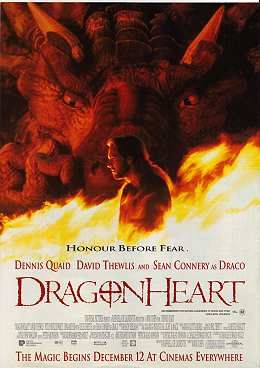
5. Dragonheart: Yep, and I only ever saw it one time! But the character of Bowen resonated deeply with me. He was looked upon as old-fashioned, out-dated and pretty much useless by everyone simply because he felt strong and true to the Knight’s Code and lived faithfully, courageously and authentically by it. I felt like him; I was somewhat old-fashioned my own self, especially when it came to ideas about how one ought to treat/respect women, ideas about sexuality (waiting until marriage, etc.), respecting teachers, holding doors open for people, and all manner of other things. Even up into my senior year of high school I had very few guy friends (though my this time the guys in my class had ceased ridiculing me for never having “scored,” among other things) but many friends who were girls. They trusted me, confided in me and for the most part all the guys around me hated me for it and that, my friends, is a pretty awesome feeling to be hated for such a thing! While I never had a girlfriend in my whole K-12 education (a great irony, I know), I had a level of affection and, frankly, love from more women than any number of notches any guy on the football team claimed to have on his belt. Note: Yes, I have suffered a great deal because of the respect I’ve shown women throughout my life. But, ladies, please let these words sink very deep into your hearts: YOU ARE WORTH ALL OF IT. Don’t ever forget that!
All this to say that, yes, I saw myself in Bowen. And so, one fateful night, using the Code from this movie, I made my own Oaths of Chivalry, of course seeking to exercise them as was appropriate to the modern age I (unfortunately, I felt!) was living in! I used to recite them daily and I still remember them:
A knight is sworn to valor; his heart knows only virtue; his blade defends the helpless; his might upholds the weak; his word speaks only truth; his wrath undoes the wicked.
When I became a Knight of Columbus as a college freshman, it was like a dream come true. But as I made this oath of chivalry my freshman year of high school, I had NO idea I would be a knight serving the King of Heaven! I can see very plainly, however, how making this dramatic choice back then naturally led me to the life I am living today. As corny as it seems now to look back upon the influence this film had on me, it marked a crucial turning point in my life.
6. I’ve Never Seen the Ocean.
Sad fact! But I tell you what, there’s hardly anything more beautiful to me than when I used to lay in my bed on a cool summer’s night with the window open so I could listen to the vast corn field rustling in a soft breeze; that was my ocean. It is heartbreaking to think that I’ll never lay in that bed, in that house, by those fields ever again.
7. I Have a Bucket List of Sorts
And here it is! These aren’t so much things I must do before I die, but rather things I would like to do at some point in my life. Granted, some are very far-fetched, but if dreams must always be realistic then they hardly are worth dreaming.
-Meet Her Majesty Queen Rania of Jordan

Most beautiful woman in the world, and amazing to boot.
-Fly in a B-29 Superfortress

Well, turns out there is only one in the whole world that can still fly, and it costs like $500 to do it. However, as the Holy Spirit would have it, I happened to attend the AirVenture Airshow in Oshkosh, WI this past summer where FiFi, the very last airworthy B29, made an appearance. I got to look up inside it and see her flying around so I considered this item “fulfilled” on July 29th, 2011. I’ve loved the B29 ever since I saw pictures of it as a kid, that big, beautiful silver plane…
-See the Ringling Bros. and Barnum & Bailey Circus
I remembered seeing it as a kid, but now that my appreciation for the sheer talent that circus performing requires, I wanted to see it again as an adult. And so on November 12th of 2011 I got to see it in Rosemont, Illinois. St. Irenaeus of Lyons said, “The glory of God is man fully alive.” Granted, he wasn’t talking about the circus, but seeing the amazing feats of human strength and agility at the circus brought his quote to mind. Truly the greatest show on earth!
-Go to Ireland
As before mentioned, I got as close as Scotland; what a beautiful country! But Ireland is one of the lands of my ancestors: the others I know of being North America (been there, obviously!), Wales, northern Germany and the Czech Republic (or Bohemia as my grandmother still calls it).
-See Stonehenge
I just think it would be awesome, and I’ve always been fascinated by it.
-Go back to Loch Ness.
It is such a beautiful area and some days I find myself pining for it a bit.
-Meet the Pope
This could realistically happen if I can just get to Rome!!!
-See the Pyramids of Giza
Who WOULDN’T want to! Again, a life-long fascination.
-Sail on a sailing SHIP.
Three masts at least, moving in the water and not merely tied up on a dock or in a museum. I think sailing ships are so beautiful and it is sad that there are so few left in the world. But then again I am a living anachronism (ironically typing the very same admission on a laptop and publishing it on the internet).
-Ride on a steam engine.
Apparently I did as some museum as a youngster, but I hardly remember it. Basically I want to for the same reasons as the sailing ship!
-Visit the Shrine of the North American Martyrs
Look up these heroic Jesuits who brought the faith to Canada and the northeastern US; they were my heroes in novitiate. In the summer of 2009 I got to visit the Midland Shrine in Ontario and walk the very ground upon which walked these great men and under which two of them were buried. It was such a gift; I highly recommend a visit. I hope to visit the Shrine in Auriesville, NY some day to see the grave of my favorite of them–St. Isaac Jogues–and I imagine that I will at some point.
-Follow in the footsteps of William Wallace.
Check!
-Hear Beethoven’s Ninth Symphony live.
On September 28th, 2007–the day before my birthday–I finally got to hear a live performance of the music that changed my life forever in the sixth grade.
-Hear Mozart’s Requiem live.
November 2nd, 2006. There is a parish in St. Paul, MN that celebrates the Mass for All Soul’s Day and invites a chamber orchestra and chorus to provide Mozart’s Requiem as the musical setting for the liturgy. It is one thing entirely to sit in a concert hall and behold this glorious music (I had the pleasure of doing so a few years ago in St. Louis) but to experience the Requiem in the context of a beautifully celebrated, solemn, Latin Mass (Novus Ordo, too!) is a different category of experience altogether. It was the first time in my life where I exclaimed within myself, “Why doesn’t the whole WORLD want to be Catholic!” There were many experiences to come later in which I would feel my heart leap similarly, but this was the first.
I of course went again the next year!
-See all six Star Wars films in the theater.
Thanks to the Special Edition releases in the late 1990s, this dream came true.
Yes I plan on seeing them in 3D; I LOVE seeing these movies in a theater setting.
-See a million dollars.
In the summer of 2005 my girlfriend and her mother invited me to Las Vegas. I really went for two reasons: a) to be with my girlfriend on a free trip to Las Vegas and b) to go to the Hilton for the Star Trek experience (which was AWESOME). There, in the lobby of the Hilton, in a bullet-proof glass box, was a million dollars in cash. I’d never seen so much money in my whole life.
I still remember when I was eight years old and got my first twenty-dollar bill.
So there you go! Seven more things you probably didn’t know about me! Hopefully as I get settled back in to Milwaukee I’ll have a chance to post the next portion of The Debtor King.
 2
2 3
3 4
4
 6
6 7
7 8
8
 10
10 11
11 12
12
 14
14

